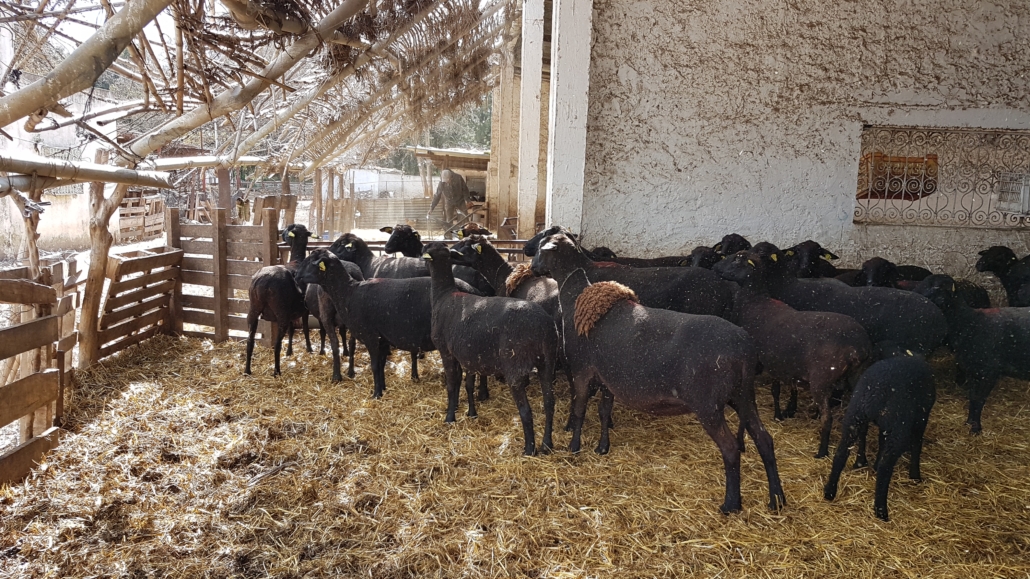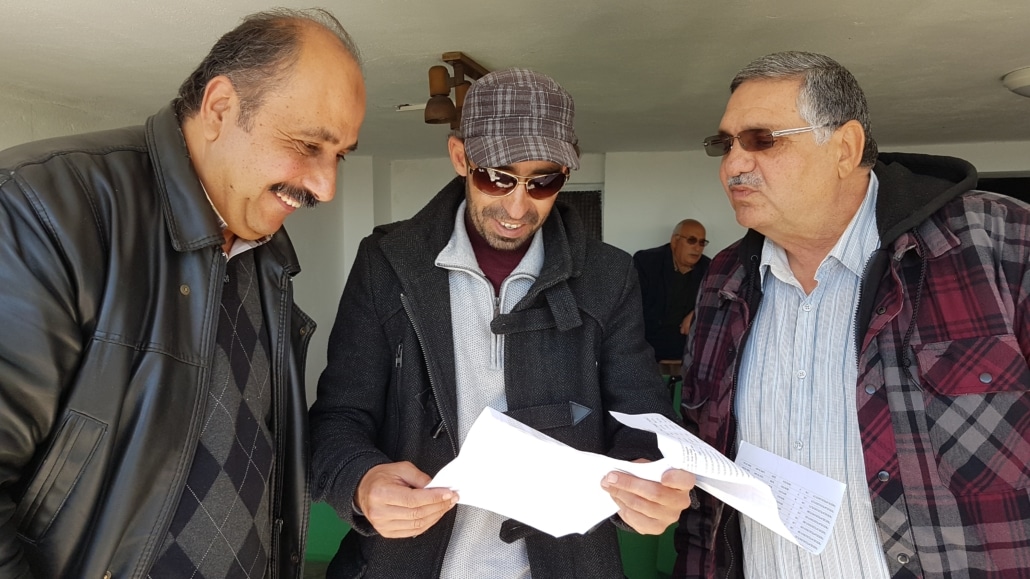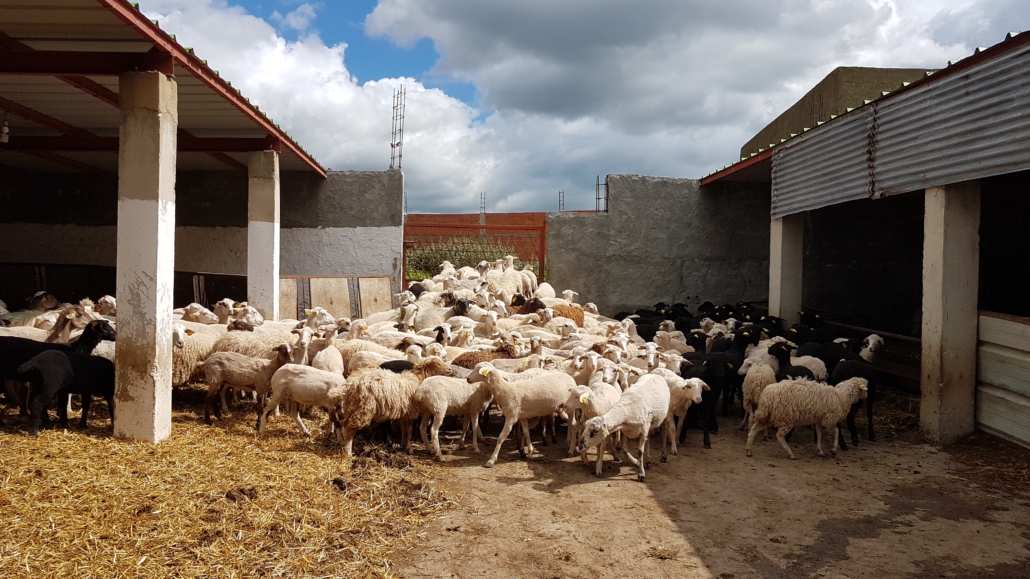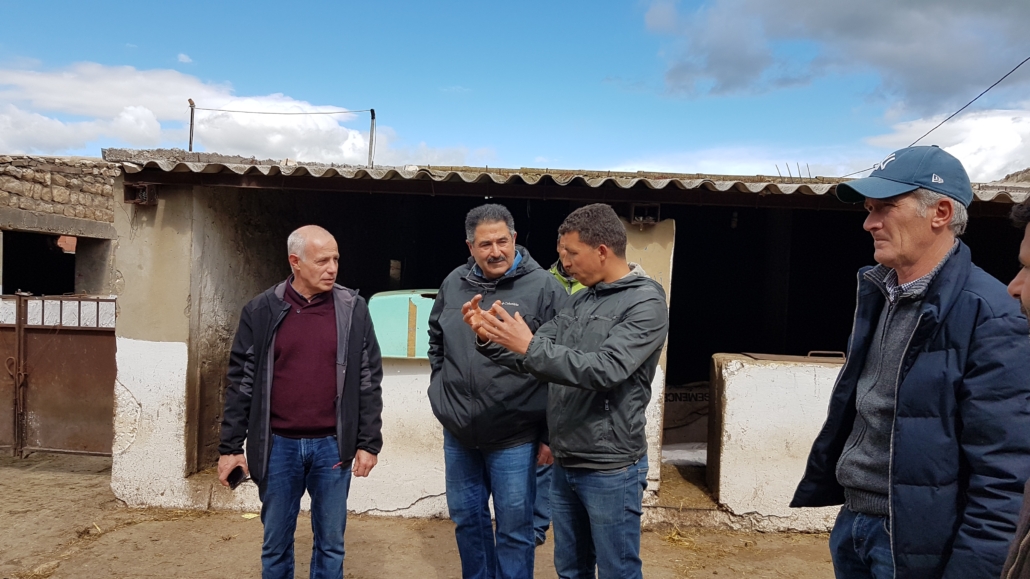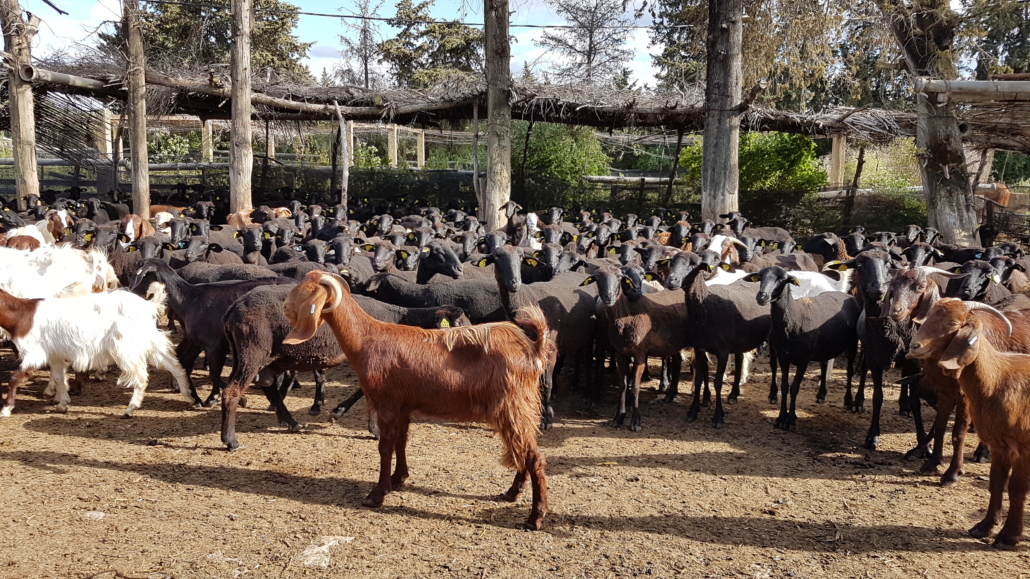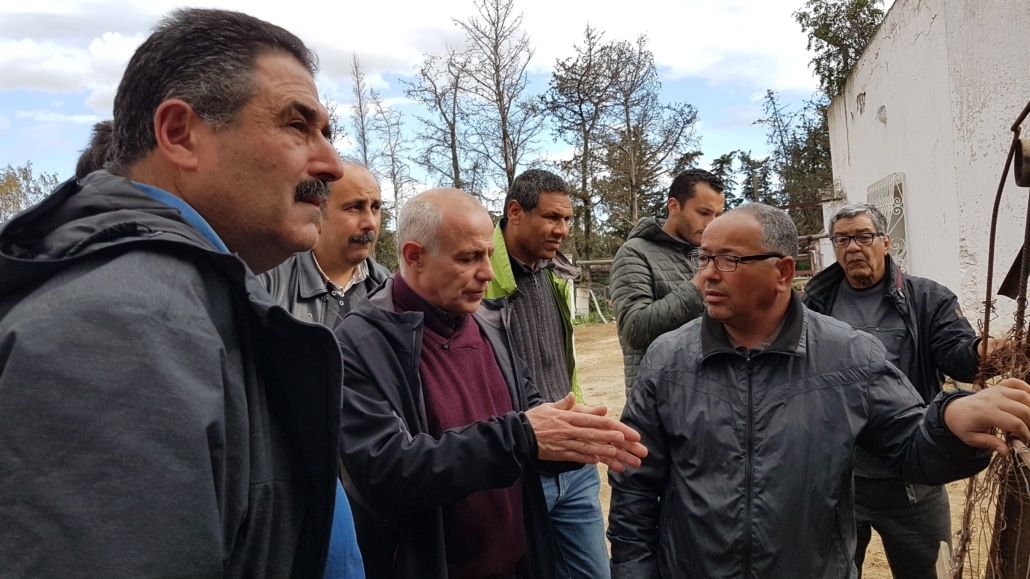In Tunisia, some local sheep breeds are deteriorating and local flocks are getting smaller and smaller. Inbreeding is the main cause: it deteriorates genetic potential and leads to lower milk and meat production.
Aware of the problem, the agricultural development group of sheep breeders from the North – GDAEBN – wanted to set up local breeds’ selection schemes.
WHAT IS A SELECTION SCHEME?
Thanks to an ingenious organization between breeders and other key partners, selection consists in jointly identifying, in flocks, the best genetic potential through measurable indexes, prioritized by breeders (for example, the quantity of milk produced). In a second step, it is a question of widely disseminating these best genetic potentials and, via reproduction, improving the entire livestock population.
Since its creation in 2011, GDAEBN has initiated the implementation of selection schemes for 2 local breeds in danger in northern Tunisia:
- Black Thibar (meat breed)
- Sicilo-Sardinian (dairy breed)
The breeders’ wish is to achieve a functional scheme through:
- The identification of each sheep by a number
- The definition, by the group of breeders, of selection objectives
- The recording of master data (performance)
- The calculation of genetic indexes
- The choice of animals and the organization of reproductions
Find the video presentation of the breeders’ group – GDAEBN by clicking here.
A FIRST STUDY TRIP TO FRANCE FOR THE GDAEBN
In order to share experiences, Fert organizes a first study tour in France for the GDAEBN, which was wondering about the implementation of their selection schemes:
- What is the next step?
- How to get to a functioning scheme?
- How can the group progress in the selection of local breeds?
- How many and what selection objectives should be set?
This study tour in the south of France allows GDAEBN to meet French breeders’ groups who manage selection schemes but it is also an opportunity to address issues of marketing, improving value-addition to products… To learn more click here.
It is during this trip that GDAEBN meets the head of the Centre Ovin CDEO64, Francis FIDELLE. Mutually pleased about this meeting, the exchange continues in Tunisia during Francis FIDELLE’s mission.
FRANCIS FIDELLE MEETS THE GDAEBN IN TUNISIA
In April 2019, Fert organized and supported an exchange mission between GDAEBN and CDEO64 in Tunisia.
Flocks’ visits, exchanges with leaders and partners enable GDAEBN to explain the genetic selection actions that are implemented.
Francis FIDELLE, Head of the Insemination Centre at CDEO64
“I am impressed by what the GDAEBN group has initiated, all the elements are there for the selection scheme to be functional. »
“In genetics, it is important to get quick results, because it brings together and energizes the group. »
Today, to move forward, GDAEBN’s objective is to establish a partnership with the INRAT research institute and the Office de l’Elevage et des Pâturages (OEP). Everyone has a decisive role to play in setting up the local breed selection schemes in northern Tunisia.
The CDEO64 mission in Tunisia allows GDAEBN to initiate the definition of this partnership.
FUTURE STRATEGIC CHOICES FOR THE GDAEBN
Tomorrow, GDAEBN wishes to develop its agricultural advisory service to farmers, train its technicians and develop exchanges between farmers. Fert supports this reflection and the development of these various services.

